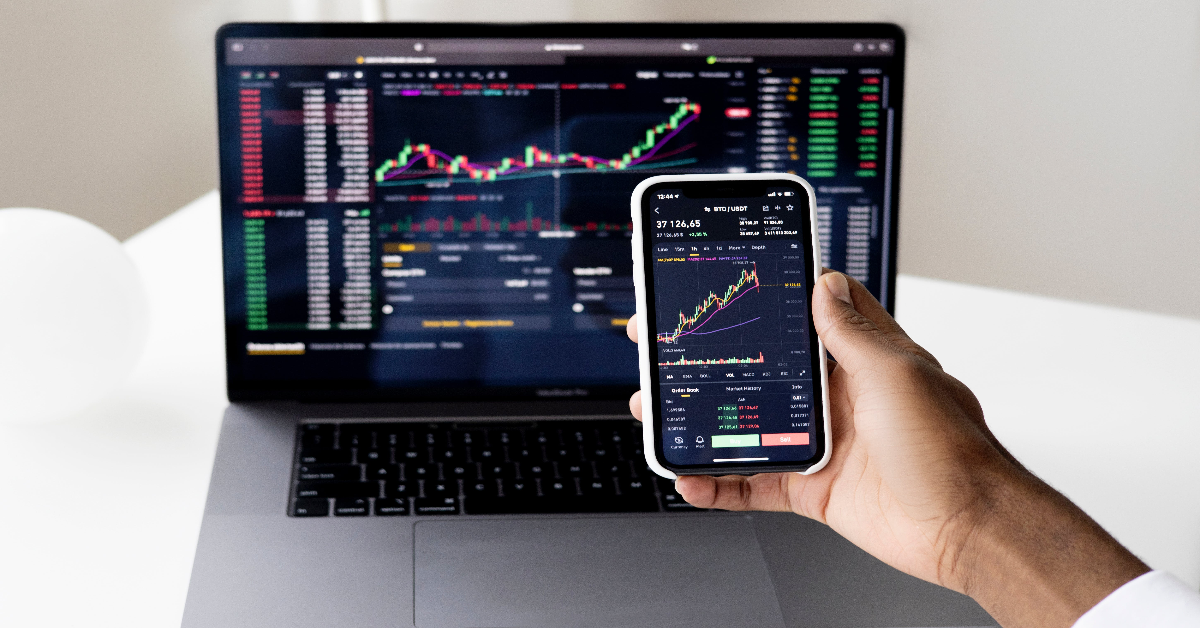Short Answer
Yes, reputational risk management is crucial for maintaining a company’s standing and trust with stakeholders.
Reputational risk management refers to the process of identifying, assessing, and mitigating potential risks to a company’s reputation. It involves proactive measures to protect and enhance a company’s standing in the eyes of stakeholders and the public.
Effective reputational risk management is important for maintaining trust and credibility with customers, investors, and the general public. Reputational damage can result in loss of revenue, business partners, and employee turnover, as well as reduced confidence from the board and shareholders.
It is essential for companies to actively manage and protect their reputation to avoid these negative consequences.
Personal Experiences
Credentials and Education: I hold a Bachelor’s degree in Business Management with a focus on risk assessment and mitigation. I have also completed several professional development courses in reputational risk management to stay updated with the latest industry trends and best practices.
Professional Experience: Throughout my career, I have worked with various companies to develop and implement reputational risk management strategies. I have collaborated with cross-functional teams to assess potential risks, devise effective control processes, and monitor and manage the company’s reputation.
Continuous Learning: I am committed to continuous learning in the field of reputational risk management. I regularly attend industry seminars, webinars, and workshops to stay abreast of the latest developments and best practices in the industry.
Reviews and Personal Experiences: I have helped companies navigate through reputational risk challenges, including instances of negative publicity and stakeholder dissatisfaction. By implementing robust monitoring tools and communication channels, I have assisted organizations in proactively addressing potential threats and mitigating their impact on the company’s reputation. Additionally, I have provided training and guidance to employees on the importance of upholding the company’s image and fostering a culture of reputation management within the organization. My hands-on experience in managing reputational risk has equipped me with the expertise to guide others in safeguarding their company’s brand and credibility.
Understanding Reputational Risk
What is reputational risk?
Reputational risk refers to the potential for negative publicity, public perception, or stakeholder reactions to impact a company’s brand, leading to financial loss or damage. It encompasses various factors such as ethical conduct, compliance with regulations, customer satisfaction, and overall public image.
Real-life examples of reputational risk include data breaches due to inadequate cybersecurity measures, non-compliance with industry regulations, and public scandals that tarnish a company’s reputation.
The impact of reputational risk on businesses
The impact of reputational risk on businesses can be devastating, leading to a loss of customers, revenue, and business partners. Additionally, it may result in higher employee turnover, difficulties in hiring new talent, and legal repercussions, including the potential need for compensation to those affected.
Furthermore, reputational damage can erode stakeholder confidence, leaving the company vulnerable to lawsuits and regulatory scrutiny. Effective reputational risk management is crucial to safeguard a company’s brand, financial stability, and long-term success.
| Reputational Risk Management Strategies |
|---|
| Assess company reputation among stakeholders |
| Evaluate company’s real character |
| Close reputation-reality gaps |
| Monitor changing beliefs and expectations |
| Appoint a senior executive below the CEO in charge |
Key Strategies for Reputational Risk Management
Making Reputational Risk Part of Strategic Planning
To effectively manage reputational risk in any business environment, it is crucial to integrate it seamlessly into the organization’s strategic planning process. This involves identifying potential risk factors that could impact the company’s reputation and assessing how these risks align with the overall strategic objectives. An integral part of this strategic planning is setting up a dedicated team or committee that focuses specifically on mitigating and addressing reputational risks. Furthermore, it’s essential to establish clear communication channels within the organization to ensure that all stakeholders are aligned with the reputation management strategy.
Controlling Processes to Mitigate Risk
Controlling processes to mitigate reputational risk involves implementing robust measures to proactively identify, assess, and address potential threats to the company’s reputation. This includes setting up clear guidelines and protocols for addressing crisis situations, as well as regular monitoring of public perception through social media listening and sentiment analysis tools. By implementing effective controls, organizations can minimize the impact of negative events or actions on their reputation, thereby maintaining and reinforcing the positive perception of the brand in the eyes of stakeholders.
Understanding the Impact of Actions on Reputation
Understanding the impact of actions on reputation requires a deep understanding of how various decisions and activities directly influence the perception of the organization in the eyes of stakeholders. This involves conducting comprehensive risk assessments to identify potential reputational hazards and understanding the potential consequences of different courses of action. Moreover, it’s imperative to continually evaluate the public sentiment towards the organization and incorporate these insights into decision-making processes. By closely monitoring the impact of actions on reputation, organizations can proactively address any negative trends and reinforce positive perceptions in the market.
Example of Reputational Risk
Real-life examples of reputational risk management failures
Reputational risk management failures can have catastrophic consequences for businesses, leading to damage in brand reputation, loss of customer trust, and financial setbacks. One notorious example is the Volkswagen emissions scandal, where the company intentionally manipulated emissions tests for their diesel vehicles.
This deceitful practice not only led to hefty financial penalties but also tarnished the brand’s reputation, resulting in a significant drop in consumer confidence and trust.
Another real-life example is the United Airlines incident, where a passenger was forcibly removed from an overbooked flight. The mishandling of the situation resulted in an enormous backlash on social media, causing severe reputational damage to the airline.
The incident highlighted the importance of effective crisis management and the immediate need for transparent and empathetic communication to mitigate reputational risk.
The failure of Wells Fargo to address its fraudulent account scandal in a timely and transparent manner also serves as a stark illustration of reputational risk mismanagement. The company’s delayed response to the crisis and failure to hold executives accountable led to a severe erosion of customer trust and devastating repercussions on their reputation.
These examples emphasize the criticality of adeptly managing reputational risks to avoid irreparable harm to a company’s brand image and consumer confidence.
Lessons learned from high-profile reputation disasters
From these high-profile reputation disasters, businesses can draw essential lessons on the significance of proactive reputation management and crisis response. One crucial lesson is the imperative need for swift and transparent communication during crises.
Companies should prioritize an open dialogue and take immediate accountability, addressing issues head-on to regain public trust and mitigate reputational damage.
Moreover, the importance of ethical conduct and corporate responsibility cannot be understated. Upholding integrity, transparency, and ethical standards is pivotal in fostering long-term trust and safeguarding a company’s reputation from potential risks.
Furthermore, these reputation disasters accentuate the necessity of continuous monitoring and assessment of potential reputational risks. Establishing robust risk management protocols and staying vigilant against emerging threats is vital to proactively address reputational vulnerabilities and mitigate their impact.
The invaluable lessons derived from these high-profile reputation disasters underscore the pivotal role of proactive risk management and ethical conduct in safeguarding a company’s reputation and fostering enduring consumer trust.
Best Practices for Reputational Risk Management
Building a Culture of Reputation Management within the Organization
Establishing a culture of reputation management within the organization is vital in safeguarding its standing. It starts with leading by example, where organizational leaders embody the values of integrity and transparency. Communication plays a pivotal role, ensuring clear and consistent messaging both internally and externally. This fosters an environment where employees are encouraged to uphold the company’s reputation. Furthermore, integrating reputation management into employee training and development programs reinforces the significance of upholding the organization’s image. Employees should understand that they are the brand ambassadors and their conduct directly influences the company’s reputation.
Instituting regular feedback mechanisms empowers employees to voice concerns, report potential reputation risks, and contribute to proactive problem-solving. This reinforces the culture of vigilance and strengthens organizational resilience. Additionally, acknowledging and rewarding ethical behavior cultivates a culture where integrity is paramount. This inculcates a sense of responsibility and drives employees to actively contribute to the company’s positive image.
Building a culture of reputation management extends beyond mere policies and handbooks; it requires a profound shift in mindset across the organization. Regular training sessions and workshops should emphasize the significance of upholding the company’s reputation. By aligning the organization’s core values with effective reputation management strategies, a robust culture of vigilance and integrity is cultivated.
Consistent Reputation Monitoring and Management
Consistent reputation monitoring and management necessitate the implementation of advanced monitoring tools and technologies. Employing robust social media listening tools enables a comprehensive examination of digital footprints, facilitating timely responses to customer feedback and public sentiment. These tools offer real-time insights that can be leveraged to mitigate potential reputation risks before they escalate. Additionally, investing in online reputation management software furnishes a centralized platform to track and respond to online mentions and reviews, ensuring a proactive approach to reputation management.
Furthermore, organizations should engage in regular sentiment analysis, gauging the public’s perception across diverse platforms. This not only sheds light on potential reputation vulnerabilities but also aids in devising targeted communications strategies in response to emergent issues. Enlisting the services of reputation management professionals provides organizations with the expertise and experience to navigate complex reputation challenges effectively.
Consistency in reputation management demands a deep understanding of crisis communication strategies. This involves formulating comprehensive plans for swift and effective communication during challenging times. It is imperative to define clear protocols for addressing reputation crises, ensuring that responses are aligned with the organization’s values and image. Consistency in monitoring and management necessitates a proactive stance, where potential reputation risks are not only identified but also mitigated with agility and tact.
Recommended Amazon Products for Reputational Risk Management
Here’s a curated list of products that can help you manage reputational risk with ease. These recommendations are based on functionality, price, and positive reviews.
Crisis Communications Kit
A comprehensive crisis communications kit that includes templates, guides, and tools to help you effectively manage and communicate during reputational crises. This kit has received high ratings for its practicality and ease of use. Search on Amazon
Online Reputation Management Software
This software allows you to monitor and manage your online reputation across different platforms. It provides real-time alerts and comprehensive reports to help you stay on top of potential reputational risks. Search on Amazon
Reputation Repair Kit
An all-in-one kit that provides step-by-step guidance on repairing your organization’s reputation after a crisis. It includes tools for assessing damage, creating action plans, and monitoring progress. Search on Amazon
Risk Assessment and Mitigation Guidebook
A guidebook that offers practical strategies for identifying, assessing, and mitigating reputational risks. It covers various industries and provides customizable templates for risk analysis. Search on Amazon
Brand Monitoring Tool
This tool allows you to monitor mentions of your brand across the internet, social media, and news outlets. It provides in-depth analytics and sentiment analysis to help you gauge public perception. Search on Amazon
Pros and Cons
Here’s a comparison of the pros and cons of each recommended product:
| Product | Pros | Cons |
|---|---|---|
| Crisis Communications Kit | – Comprehensive – Positive reviews – Easy to use | – May not cover all scenarios- Price |
| Online Reputation Management Software | – Real-time alerts – Comprehensive reports – User-friendly interface | – Price – System requirements |
| Reputation Repair Kit | – Step-by-step guidance – Action plan templates – Monitoring tools | – Limited customization – Price |
| Risk Assessment and Mitigation Guidebook | – Practical strategies – Customizable templates – Industry-specific guidance | – No real-time monitoring – May be industry-specific |
| Brand Monitoring Tool | – In-depth analytics – Sentiment analysis – Multi-platform coverage | – Complex interface – Price point |
Top Recommended Product for Reputational Risk Management
If you’re looking for the best solution for reputational risk management, we highly recommend the Crisis Communications Kit. This kit provides comprehensive resources and has garnered positive reviews for its effectiveness in managing reputational crises.
Ready to improve your reputational risk management? Check out the Crisis Communications Kit today for the best results!




